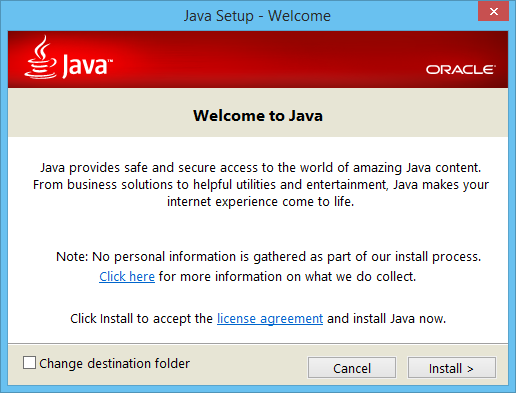 Oracle heeft versie 9 van de developmentkit van Java Standard Edition uitgebracht. Downloads zijn beschikbaar voor Windows. Linux, macOS en Solaris. De complete release notes zijn te lang om hier weer te geven, dus we volstaan met een link naar de pagina waar ze te vinden zijn. Hieronder is informatie te vinden over de belangrijkste vernieuwing in versie 9, de introductie van modules.
Oracle heeft versie 9 van de developmentkit van Java Standard Edition uitgebracht. Downloads zijn beschikbaar voor Windows. Linux, macOS en Solaris. De complete release notes zijn te lang om hier weer te geven, dus we volstaan met een link naar de pagina waar ze te vinden zijn. Hieronder is informatie te vinden over de belangrijkste vernieuwing in versie 9, de introductie van modules.
Java Platform Module System
Introduces a new kind of Java programing component, the module, which is a named, self-describing collection of code and data. This module system:The JDK itself has been divided into a set of modules. This change:
- Introduces a new optional phase, link time, which is in-between compile time and run time, during which a set of modules can be assembled and optimized into a custom runtime image; see the
jlinktool in Java Platform, Standard Edition Tools Reference.- Adds options to the tools
javac,jlink, andjavawhere you can specify module paths, which locate definitions of modules.- Introduces the modular JAR file, which is a JAR file with a
module-info.classfile in its root directory.- Introduces the JMOD format, which is a packaging format similar to JAR except it can include native code and configuration files; see the
jmodtool.
- Enables you to combine the JDK's modules into a variety of configurations, including:
- Configurations corresponding to the JRE and the JDK.
- Configurations roughly equivalent in content to each of the Compact Profiles defined in Java SE 8.
- Custom configurations that contain only a specified set of modules and their required modules.
- Restructures the JDK and JRE runtime images to accommodate modules and improve performance, security, and maintainability.
- Defines a new URI scheme for naming modules, classes, and resources stored in a runtime image without revealing the internal structure or format of the image.
- Removes the endorsed-standards override mechanism and the extension mechanism.
- Removes
rt.jarandtools.jarfrom the Java runtime image.- Makes most of the JDK's internal APIs inaccessible by default but leaves a few critical, widely used internal APIs accessible until supported replacements exist for all or most of their functionality.
Run the command
jdeps -jdkinternalsto determine if your code uses internal JDK APIs.


:strip_exif()/i/2003867114.png?f=thumbmedium)